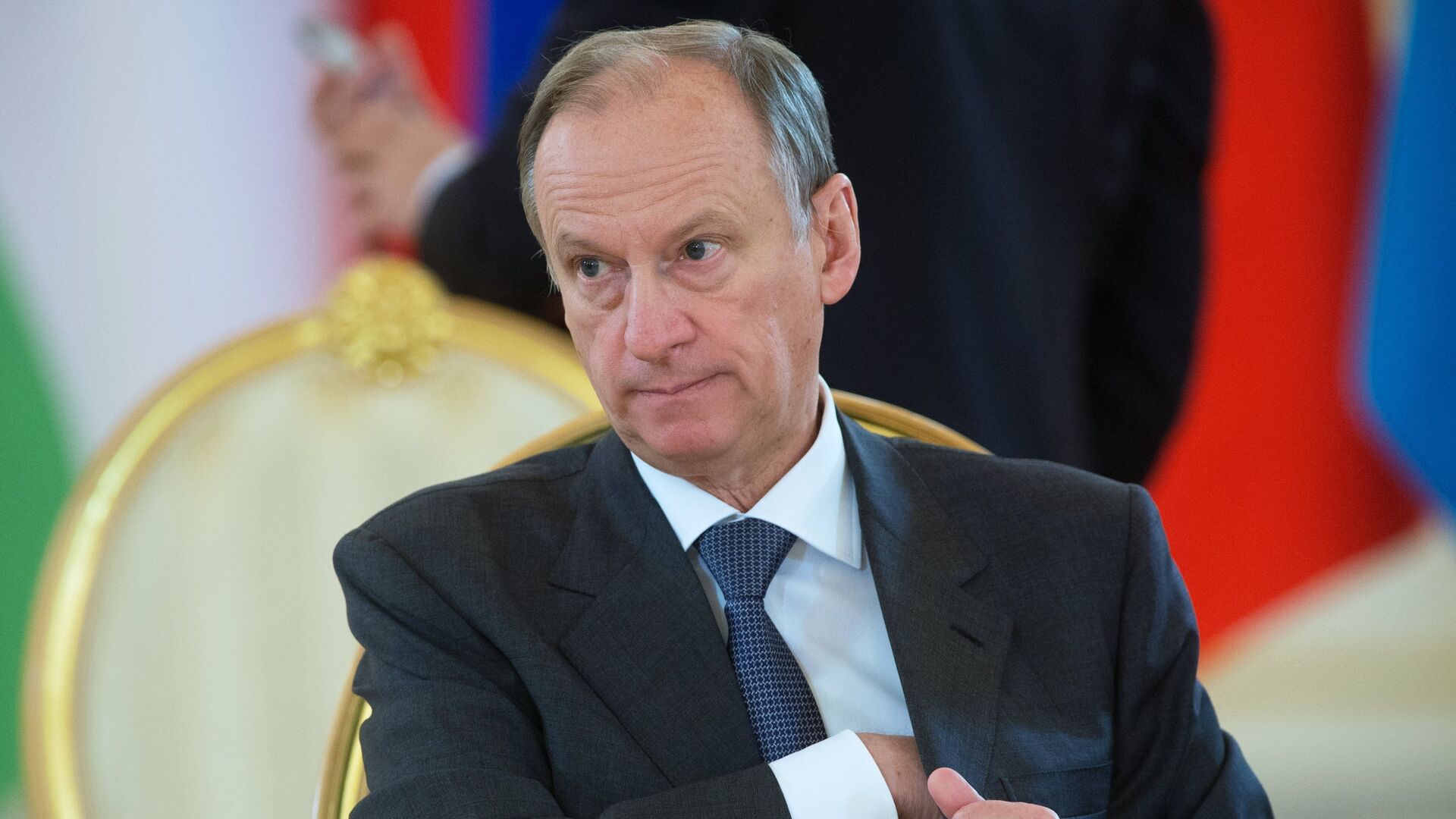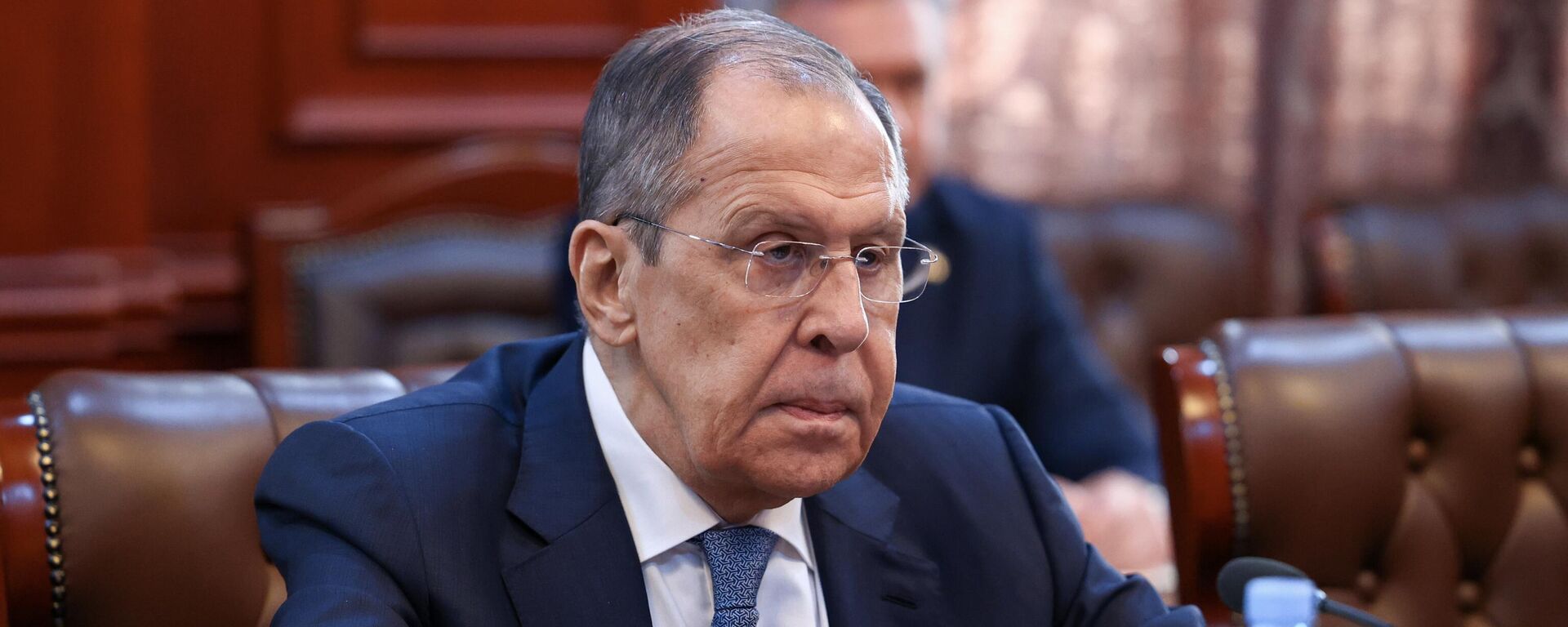https://sputnikglobe.com/20240216/west-seeking-to-create-hotbed-of-instability-in-central-asia---russian-security-council-1116819826.html
West Seeking to Create Hotbed of Instability in Central Asia - Russian Security Council
West Seeking to Create Hotbed of Instability in Central Asia - Russian Security Council
Sputnik International
The West is seeking to create a major hotbed of instability in Central Asia and destabilize the situation in the South Caucasus, Russian Security Council Secretary Nikolai Patrushev said on Friday.
2024-02-16T11:11+0000
2024-02-16T11:11+0000
2024-02-16T11:11+0000
world
kyrgyzstan
armenia
central asia
nikolai patrushev
russian security council
russia
https://cdn1.img.sputnikglobe.com/img/104864/75/1048647569_0:0:2879:1620_1920x0_80_0_0_99ae62362dd692f19db235c5a82290a1.jpg
"[The West's] plans include the creation of a major hotbed of instability in Central Asia," Patrushev told a meeting of security council secretaries on Afghanistan in Bishkek, Kyrgyzstan. To save hegemony, Western countries are also attempting to increase tensions in the South Caucasus to hamper the Armenian-Azerbaijani settlement, the official added. The South Caucasus is considered one of the most conflict-ridden regions of the globe, primarily due to the long-standing conflict between Armenia and Azerbaijan over the breakaway Nagorno-Karabakh region. In September 2023, Azerbaijan took control over the region, populated mainly by ethnic Armenians, prompting almost all local residents to flee to Armenia. The Nagorno-Karabakh authorities declared that the unrecognized state would cease to exist from January 1, 2024. On February 1, 2024, Azerbaijani President Ilham Aliyev said a peace treaty between the two countries could be signed only after amendments are made to the constitution of Armenia. Central Asia is also considered a turbulent region due to military confrontations that occasionally occur on the border between Kyrgyzstan and Tajikistan. In mid-August 2023, relations between Kazakhstan and Kyrgyzstan deteriorated as well, as Bishkek stopped supplying irrigation water to its neighbor, after which Astana blocked all border crossings.
https://sputnikglobe.com/20230606/russias-lavrov-urges-central-asia-to-critically-assess-military-cooperation-with-west-1110946133.html
kyrgyzstan
armenia
central asia
russia
Sputnik International
feedback@sputniknews.com
+74956456601
MIA „Rossiya Segodnya“
2024
Sputnik International
feedback@sputniknews.com
+74956456601
MIA „Rossiya Segodnya“
News
en_EN
Sputnik International
feedback@sputniknews.com
+74956456601
MIA „Rossiya Segodnya“
Sputnik International
feedback@sputniknews.com
+74956456601
MIA „Rossiya Segodnya“
south caucasus, russian security council secretary nikolai patrushev, hotbed of instability
south caucasus, russian security council secretary nikolai patrushev, hotbed of instability
West Seeking to Create Hotbed of Instability in Central Asia - Russian Security Council
BISHKEK (Sputnik) - The West is seeking to create a major hotbed of instability in Central Asia and destabilize the situation in the South Caucasus, Russian Security Council Secretary Nikolai Patrushev said on Friday.
"[The West's] plans include the creation of a major hotbed of instability in Central Asia," Patrushev told a meeting of security council secretaries on Afghanistan in Bishkek, Kyrgyzstan.
To save hegemony, Western countries are also attempting to increase tensions in the South Caucasus to hamper the Armenian-Azerbaijani settlement, the official added.
The South Caucasus is considered one of the most conflict-ridden regions of the globe, primarily due to the long-standing
conflict between Armenia and Azerbaijan over the breakaway Nagorno-Karabakh region. In September 2023, Azerbaijan took control over the region, populated mainly by ethnic Armenians, prompting almost all local residents to flee to Armenia. The Nagorno-Karabakh authorities declared that the unrecognized state would cease to exist from January 1, 2024. On February 1, 2024, Azerbaijani President Ilham Aliyev said a peace treaty between the two countries could be signed only after amendments are made to the constitution of Armenia.
Central Asia is also considered a turbulent region due to military confrontations that occasionally occur on the border between Kyrgyzstan and Tajikistan. In mid-August 2023, relations between Kazakhstan and Kyrgyzstan deteriorated as well, as Bishkek stopped supplying irrigation water to its neighbor, after which Astana blocked all border crossings.



